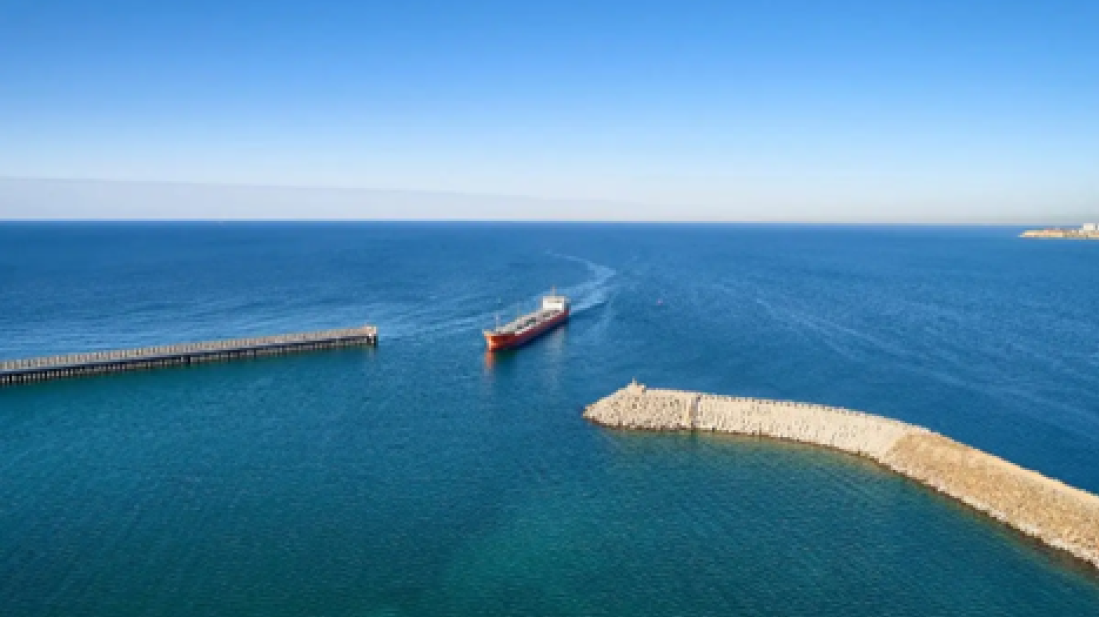Kazakhstan vows to fast-track AZAL crash investigation amid rising diplomatic tensions
Kazakhstan has vowed to speed up its investigation into the Azerbaijan Airlines (AZAL) crash near Aktau, as mounti...

Kazakhstan has resumed oil exports via the Baku–Tbilisi–Ceyhan (BTC) pipeline. KazMunayGas said through its press service that a shipment of 8,800 tonnes of Kashagan oil was dispatched from the port of Aktau on the 13 September.
The next shipment along this route is scheduled for the 20 September, a week after the initial shipment was made. The use of the BTC pipeline has been temporarily on hold since August earlier in the year.
In the first eight months of 2025, the volume of Kazakh oil transported via the BTC route amounted to 0.9 million tonnes. Kazakhstan plans to significantly increase volumes – from 1.5 million to 20 million tonnes per year. This is linked to the need to diversify export routes and reduce risks associated with transit through a limited number of channels.
Currently, around 70% of the country’s total oil output is exported. Of these exports, 98% are transported via two main routes: the Caspian Pipeline Consortium (CPC) and the Uzen–Atyrau–Samara pipeline. Both routes however, pass through Russian territory, creating a critical dependence on a single transit corridor.
Such concentration could pose potential risks in the event of geopolitical instability or restrictions imposed by transit countries.
For example, in 2022, operations at CPC were suspended multiple times, forcing Kazakhstan to temporarily reduce production at major fields to avoid storage overcapacity. These incidents highlight the vulnerability of the existing export framework and the necessity to seek alternatives.The BTC pipeline is considered one such alternative. Its main advantage is that it completely bypasses Russia.
The pipeline has a capacity of up to 60 million tonnes per year but is currently utilised at less than half, which presents opportunities for Kazakhstan to increase its shipments.
If the current reliance on Russian transit continues, potential disruptions could seriously affect Kazakhstan’s economy. Today, about half of the country’s budget revenue comes from oil and gas, with 60% of export earnings linked to oil sales. In this context, using alternative routes like BTC helps to mitigate strategic risks.
However, the BTC route is associated with certain economic limitations. Rashid Zhaksylykov, Chairman of the Presidium of the KazService Union of Oilfield Service Companies, revealed that shipments via BTC would become economically unviable if oil prices fall below $40 per barrel. However, at $70–80 per barrel, the route remains profitable and can yield Kazakhstan a positive margin despite higher transportation costs.
Zhaksylykov also noted that external economic and geopolitical factors do not eliminate the need to increase production volumes. In 2025, Kazakhstan reached a production level of 90 million tonnes per year, and plans to raise this figure to 137 million tonnes in the future. In such circumstances, developing higher-cost routes may be justified if they ensure stable exports and protect budget revenues from potential shocks.
Despite economic and logistical challenges, the BTC pipeline route is becoming an important part of Kazakhstan’s energy security strategy. Its development offers Kazakhstan the opportunity to strengthen export independence and adapt to changing conditions in the global market.
The Kremlin is utilising the recent United States and Israeli military strikes on Iran to validate its ongoing war in Ukraine. Russian officials are pointing to the escalation in the Middle East as evidence that Western nations do not adhere to international rules.
Saudi Arabia’s state oil giant Saudi Aramco closed its Ras Tanura refinery on Monday following an Iranian drone strike, an industry source told Reuters as Tehran retaliated across the Gulf after a U.S.-Israeli attack on Iranian targets over the weekend.
The Middle East crisis intensifies after the deadly attack on the compound of the Supreme Leader of Iran Ali Khamenei on Saturday that killed him, other family members and senior figures. Iran has launched retaliatory strikes on U.S. targets in the region.
U.S. President Donald Trump said the U.S. military has enough stockpiled weapons to fight wars "forever"; in a social media post late on Monday. The remarks came hours before conflict in Iran and the Middle East entered its fourth day.
Türkiye raised its security level for Turkish-flagged vessels in the Strait of Hormuz to Level 3 on Sunday (2 March). The development follows Iranian restrictions on shipping after U.S. and Israeli strikes and confirmation of Supreme Leader Ali Khamenei’s death.
Seven opposition parties in Georgia have formed a coordinated alliance ahead of upcoming elections, saying it aims to challenge the dominance of the ruling Georgian Dream party. The government has dismissed the move as a rebranding of familiar political figures.
Türkiye’s President, Recep Tayyip Erdoğan, has described the ongoing U.S.–Israeli military campaign against Iran as a “clear violation of international law”, in his strongest remarks yet on the escalating regional crisis.
U.S. President Donald Trump said the U.S. military has enough stockpiled weapons to fight wars "forever"; in a social media post late on Monday. The remarks came hours before conflict in Iran and the Middle East entered its fourth day.
Kazakhstan has vowed to speed up its investigation into the Azerbaijan Airlines (AZAL) crash near Aktau, as mounting diplomatic pressure and geopolitical tensions push the disaster further into the international spotlight.
Entrances to Iran's underground and previously bombed uranium-enrichment plant at Natanz have been struck as part of the U.S.-Israeli military attacks on the country, the United Nations nuclear watchdog, the International Atomic Energy Agency (IAEZ) confirmed on Tuesday (3 March).
You can download the AnewZ application from Play Store and the App Store.

What is your opinion on this topic?
Leave the first comment